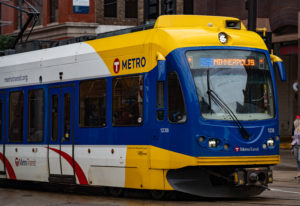CTA releases 2013 budget recommendations
Written by Jenifer Nunez, assistant editorThe Chicago Transit Authority proposed a $1.39 billion budget for 2013 that maintains current service levels, freezes base fares and calls for modest reductions in discounts for CTA passes to bring them in line with other major U.S. cities.
The budget reflects a new, tentative labor agreement with the Amalgamated Transit Union Locals #241 and #308, which represent CTA bus and rail operators. The four-year tentative agreement slows the rate of growth in health care spending and emphasizes preventative care, among changes shaving approximately $50 million off the 2013 budget deficit. Agreements with a dozen other CTA unions resulted in similar changes contributing nearly $10 million toward deficit reduction.
But facing a $165-million shortfall for 2013, the CTA needed to take further steps to shore up its finances in both 2013 and beyond. Additional management reforms have paid off with tens of millions in savings and modest reductions in pass discounts will balance the remainder of the budget and ensure future fiscal stability.
Base fares remain unchanged at $2 for bus and $2.25 for rail. The discounts for passes (3-day, 7-day and 30-day) will be reduced by $6, $5 and $14, respectively, but still will provide discounts to frequent users. The one-day pass, primarily used by tourists, will have its discount reduced by $4.25.
“This is a sound, fair and forward-looking budget that protects taxpayers and will improve service throughout the CTA system,” said Chicago Mayor Rahm Emanuel. “The CTA is the backbone of our transportation network and I commend the labor unions and CTA leadership for working together to craft a budget that works for everyone in the city of Chicago.”
The 2013-2017 Capital Improvement Program (CIP) totals $2.8 billion, with projects designed to modernize aging CTA infrastructure, overhaul and replace fleet vehicles and bring the system into a state of good repair.
This is the second consecutive budget under CTA President Forest Claypool that the CIP does not divert scarce capital funds to balance the operating budget, a move that would cause the delay or cancellation of other critical projects. From 2008 to 2011, the CTA borrowed $554 million, much of it in transfers from capital, to balance the operating budget.





